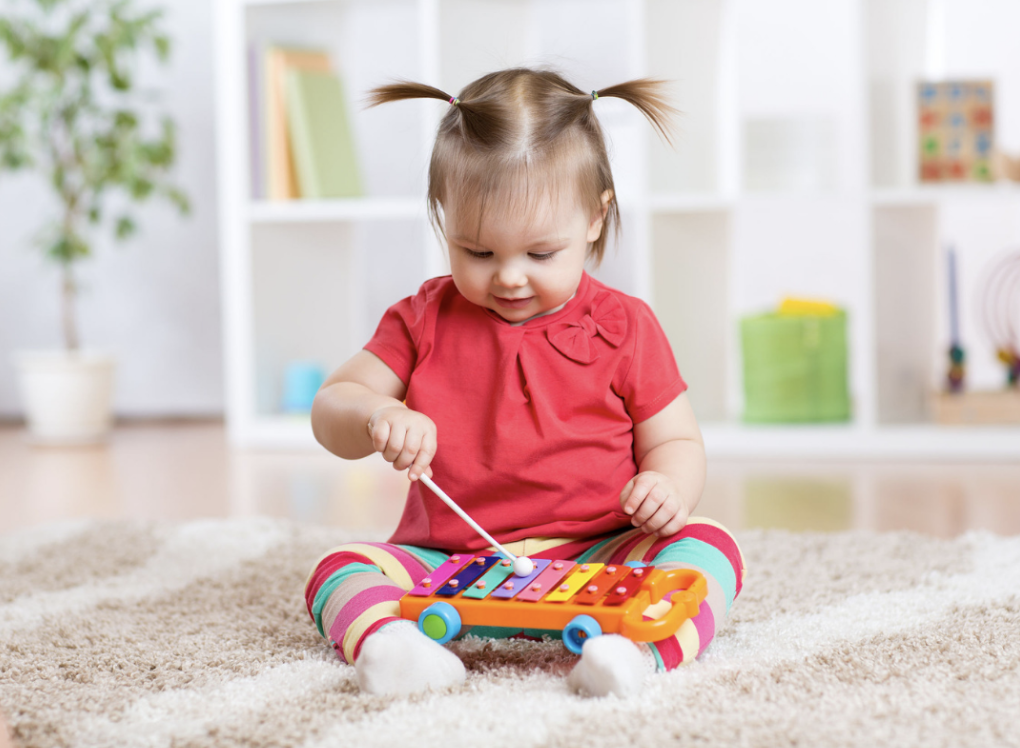Why introduce my child to music, and when?

Lots of research has been carried out into the effects of exposing young children to music; while in the womb, as newborn babies, and into childhood. It has been suggested that some babies have responded immediately to music on the outside world that their parents have played to them while they were in the womb, indicating that sound recognition occurs in babies before birth.
Not only do babies recognise sound but they quickly associate those sounds with how they feel when they hear it. They will usually associate the unique sound of their parent’s voices with comfort, white noise with bedtime or take an instant disliking to a loud sound that they’ve not yet been exposed to and are unfamiliar with. If babies can decipher between particular sounds and make connections to them, then why not introduce children to music from the very beginning?
Many parents encourage their children to have music classes aged 3+, as they’ve heard about the ‘Mozart effect’ study, research which suggests that exposing children to music (and Mozart in particular) can make them smarter. Although there is much to be said for this interesting study, I shall be putting it to one side to focus on the bigger picture in order to show that musical participation can offer children so much more than developing their intelligence.
There is no question that musical training helps develop our motor skills. Research shows that by engaging in music, we can prime our brains to think and work in certain ways. We only have five senses but when we learn a musical instrument or listen to music, up to three of them (sight, sound, and touch) can be used simultaneously.
Learning to play a musical instrument can be approached in a variety of ways. Some will play by reading notation, others prefer to learn by ear, many will use a combination of both methods. It is widely believed that the skills we acquire from learning music are the same skills that help us with problem-solving tasks. Research shows that those with musical training can be more successful at tasks involving spatial awareness and identifying patterns.
Children who learn to play a musical instrument by reading music will be quick to develop the ability to identify patterns visually as they are required to highlight patterns in their notated music and then translate them onto their instruments.
Learning a musical instrument by ear hugely improves cognitive and behavioural development. By learning to identify musical patterns by ear, a child’s aptitude for listening will increase and so will their perception and awareness of their surroundings. When a child listens to music astutely it will encourage their attentiveness and consequently develop their communication and social skills as a result.
When engaged in musical activities, children will also use touch and become increasingly aware of their own physical capabilities. In the earlier stages before learning a musical instrument, the basics of shaking a rattle or hitting a drum allow children to get to grips with coordinating and the concept of control. When they hit a drum with force it makes a loud sound but when they strike it gently it’s quiet. When children discover that they can decide what the drum can do, many children will enjoy the newfound control that they have, instigating creativity and encouraging them to experiment.
Some children might not be as outgoing or keen to experiment as others, so may require gentle encouragement to be exploratory. As they get older it is natural for children to develop inhibitions because they will become more conscious of getting things wrong. Musical activities are an excellent way to encourage children to question right from wrong and experiment creatively within a safe environment. The earlier a child is introduced to these ideas, the less they will be afraid of making mistakes in adulthood.
There are so many different reasons why exposing children to music can enrich their development and it’s never too late for it to become a part of their lives. It is undeniable that music helps to develop children’s motor, cognitive and behavioural skills and creates new pathways in their brains as they learn. It engages their senses and provides them with an open invitation to experiment with their creativity, explore new ideas, express themselves and socially interact with others. Music has the capability to provide children with a safe haven for self-discovery but most importantly helps children discover more about themselves. We can choose to expose them to music at any time, so why wait to find out whether it’s something they love when you can start now?














